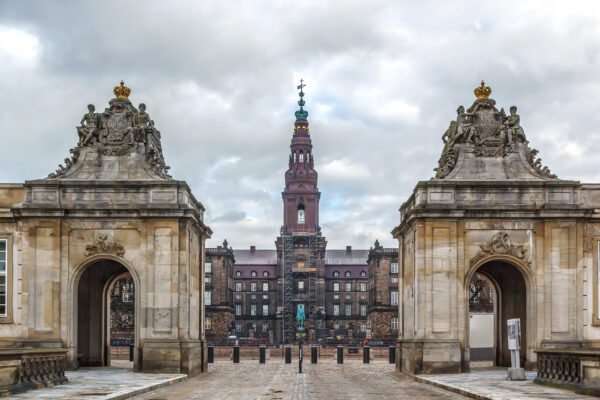
Denmark’s right-wing parties eked out a one-seat majority in Thursday’s election, forcing the prime minister, Helle Thorning-Schmidt, to resign.
But the victory was bittersweet for liberal party leader Lars Løkke Rasmussen. His Venstre lost thirteen seats and was beaten into third place by the nationalist Danish People’s Party, which won 37 seats with 21 percent of the votes.
Left loses majority
Thorning-Schmidt’s Social Democrats remained the largest party with 47 out of 179 seats in the Folketing. But the left-wing bloc as a whole fell short of a majority.
Both the junior ruling partner, Radikale Venstre, and the far-left Socialists — who pulled out of the government last year in opposition to the proposed sale of shares in DONG Energy to the American investment bank Goldman Sachs — lost more than half their seats.
The Alternativet, a new green and socially liberal party, and the centrist Liberal Alliance won nine and thirteen seats, respectively. The latter caucuses with Rasmussen’s bloc.
Discredited
The former Venstre prime minister, discredited by a slew of personal spending scandals, threw away a 17-point lead in the weeks leading up to the election. Signs of an economic recovery and tougher immigration rhetoric allowed Thorning-Schmidt to fight her way back. Some polls even predicted a narrow win for the left after all.
Yet Rasmussen is now in a stronger position to form a government, probably in coalition with the conservatives and the Liberal Alliance.
The People’s Party, which propped up the last four liberal-led governments, is likely to give parliamentary support without formally joining the coalition.
The result allows Rasmussen to govern without the support of deputies from the Faroe Islands and Greenland who had seemed on track to become kingmakers earlier in the night. Exit polls had the left- and right-wing blocs virtually tied which would have handed the four representatives of Denmark’s overseas territories the balance of power in parliament.
Euroskeptics
Given that Denmark already has one of the strictest immigration regimes in Europe, the People’s Party is more likely to seek reform in Europe in exchange for its support.
After last year’s European Parliament elections, which the People’s Party won in Denmark with 27 percent support, the nationalists joined Britain’s Conservative Party’s and Poland’s Law and Justice’s European Conservatives and Reformists bloc — shunning an alliance with less compromising Euroskeptics like Nigel Farage and France’s Marine Le Pen.
Rasmussen has already signaled his support for British prime minister David Cameron’s European reforms, telling reporters before the election that he could count on Denmark for “a new arrangement that secures British welfare and in the process pave the way for us to push through some of the things we want.”
Cameron has promised his voters a referendum on European Union membership after attempting to secure reforms that would strengthen the single market but weaken the link between the majority of member states that uses the euro and the few that don’t, including Denmark.
